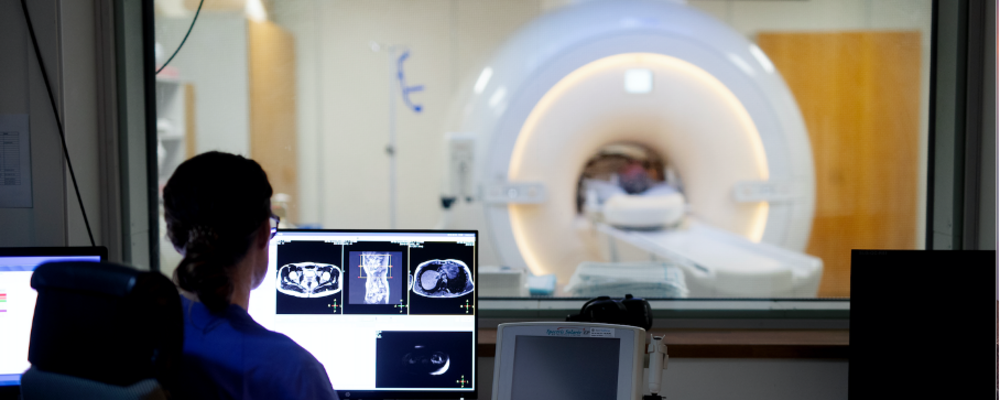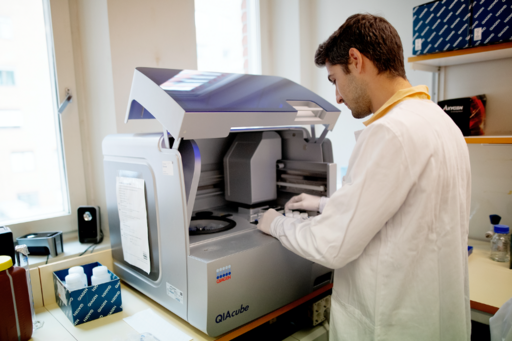
Our research methods
Research at the Institute of Medicine is interdisciplinary and extends from molecule to society. We leverage diverse research methods to study a wide range of conditions, including cardiovascular disease, diabetes, obesity and rheumatism.

Cell and molecular biology
At the Institute of Medicine, researchers in cell and molecular biology study the structure and function of molecules and cells to improve human health. Some areas of investigation include
- osteoporosis
- cancer
- metabolism
- rheumatology and inflammation
Clinical studies
Clinical studies rely on human participants to investigate health and biomedical questions, enabling the discovery of new and safe treatments. Participants in clinical studies play an essential role in advancing health and wellbeing at all ages.
At the Institute of Medicine, we drive clinical research in many areas, including cardiovascular disease, lung disease, gastrointestinal disease, cancer, diabetes and inflammatory diseases.

Epidemiological studies
Our epidemiology researchers study the prevalence, cause and trajectory of disease in a population. Using registry and observational data, we investigate the relationship between exposure to risk factors and the incidence of ill health and disease. These include lifestyle, social and environmental factors that may increase the risk for various health conditions.
Epidemiological research at the Institute of Medicine encompasses a broad range of investigation, including studies of
- heart disease
- lung diseases
- diabetes and obesity
- chronic pain
- lifecourse epidemiology
- diet and nutrition
- biostatistics
- drug use and drug policy
- health economics
- social medicine
Registry studies
In Sweden, researchers have access to many public registries with valuable data for research. Our researchers use registry data to improve understanding of diseases, disease mechanisms, risk factors, disease development and treatment and, by extension, quality assurance and improvement of care.
Our researchers use registry studies to investigate:
- disease epidemiology (knowledge of diseases in the population)
- disease risk and risk factors for various diseases
- drug use and drug policy
- drug effects and possible side effects in the population
- health finances and healthcare costs in different contexts
- social aspects of health and medical care
At the Institute of Medicine, an initiative has been underway since 2020 to strengthen registry research in areas such as respiratory diseases, cardiovascular diseases, type 1 and type 2 diabetes, osteoarthritis and Covid-19.


